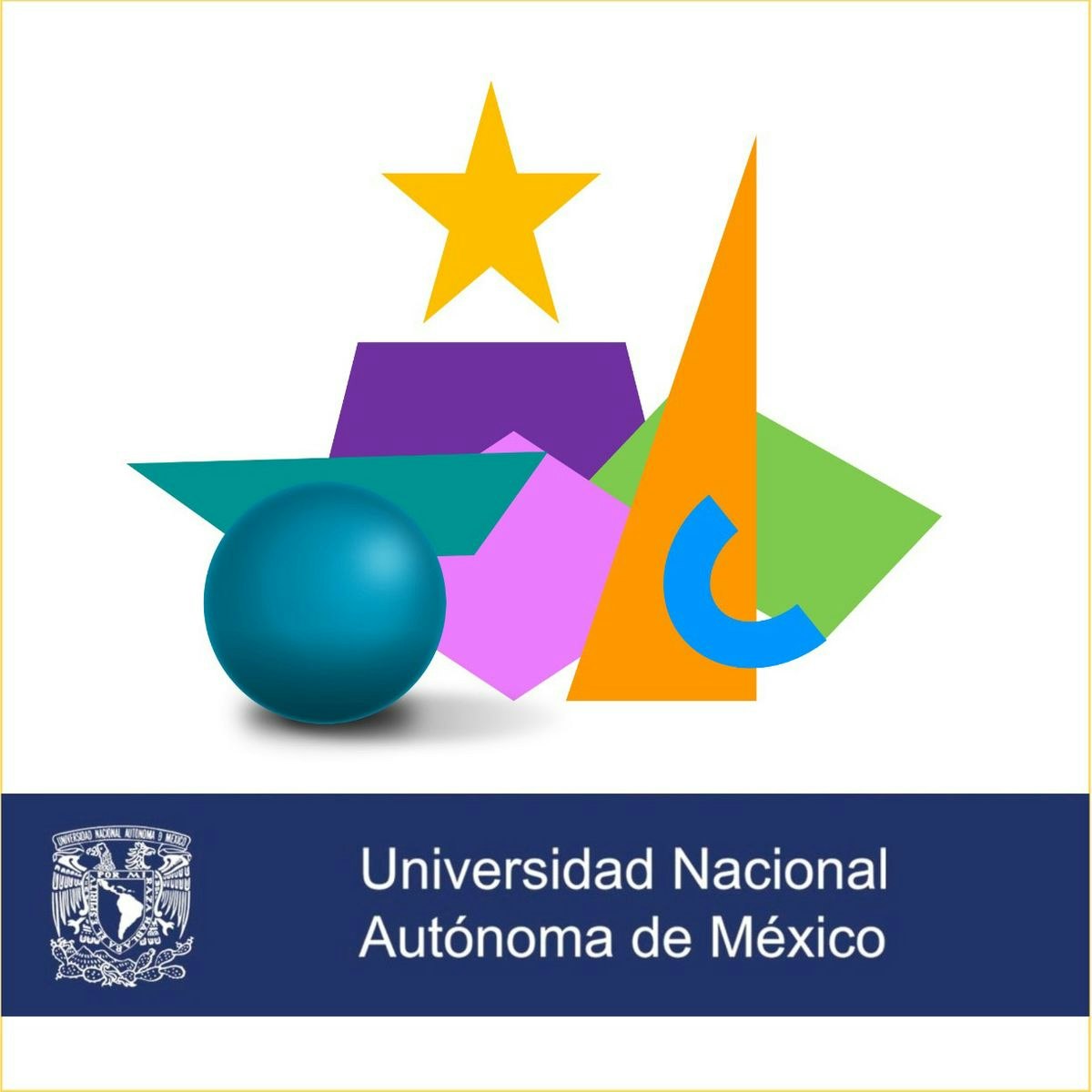Lecturer
Lecturer: A Career in Higher Education
A Lecturer is an academic professional primarily focused on teaching students at the university or college level. This role involves designing and delivering courses, engaging students in learning, assessing their progress, and often contributing to the academic community through various service activities. While research can be part of the role, the emphasis for many Lecturers lies squarely on educational delivery and student development.
Working as a Lecturer offers the unique opportunity to delve deeply into a subject you are passionate about and share that knowledge with others. It can be incredibly rewarding to guide students' intellectual journeys, witness their growth, and contribute to shaping future professionals and thinkers. The dynamic environment of higher education, with its constant flow of new ideas and diverse student populations, provides a stimulating atmosphere for lifelong learners.
Introduction to Lecturing
Defining the Lecturer Role
At its core, a Lecturer's primary function is to educate. They prepare and deliver lectures, lead seminars and tutorials, and create learning materials for undergraduate and sometimes postgraduate students. This involves staying current with developments in their field to ensure course content is relevant and engaging.
Responsibilities extend beyond the classroom. Lecturers often design course syllabi, set and grade assignments and exams, and provide feedback to students. They may also hold office hours for individual student consultations, offering academic guidance and support.
Furthermore, Lecturers contribute to their department and institution through administrative tasks, committee work, and potentially participating in curriculum review and development. The balance between teaching, administration, and sometimes research varies significantly depending on the institution and the specific contract.
Historical Context
The role of the Lecturer has evolved alongside higher education itself. Historically, university teaching was often conducted by scholars whose primary focus might have been research or clerical duties. The formalization of the Lecturer title emerged as institutions grew and required dedicated teaching staff.
Over time, especially in the 20th century, the academic landscape saw increasing specialization. This led to distinctions between different types of academic appointments, with varying expectations regarding research output, teaching load, and administrative duties. The Lecturer role often became associated with a heavier teaching focus compared to research-intensive professorships.
Today, the title "Lecturer" can encompass a range of positions, from entry-level, fixed-term contracts to more permanent roles with pathways for promotion. Understanding this historical context helps clarify the diverse nature of lecturing positions found in contemporary academia.
Lecturer vs. Professor vs. Teaching Assistant
Navigating academic titles can be confusing. A Lecturer typically has a primary focus on teaching and related duties, often requiring a Master's degree or PhD. Their contracts might be fixed-term or permanent, and research expectations can vary widely but are often lower than for Professors.
A Professor, particularly at research-intensive universities, is generally expected to conduct significant research, publish scholarly work, secure grants, supervise graduate students, teach, and perform academic service. The professorial track (Assistant, Associate, Full Professor) usually implies a tenure-track or tenured position, indicating a long-term commitment from the institution.
A Teaching Assistant (TA) is typically a graduate student who supports a course instructor (often a Professor or Lecturer). TA duties might include leading discussion sections, grading assignments, holding office hours, or managing course logistics, usually under the direct supervision of the primary instructor. It's often a stepping stone or a funding source for graduate studies.
Core Duties of a Lecturer
Teaching Responsibilities
The most visible duty of a Lecturer is teaching. This involves delivering engaging lectures, facilitating discussions in seminars or smaller groups, and guiding practical or laboratory sessions, depending on the discipline. Preparation is key, requiring Lecturers to develop lesson plans, presentations, and activities.
Lecturers teach across different levels, primarily undergraduate courses but sometimes postgraduate modules as well. They need to adapt their teaching style and content complexity to suit the audience, ensuring clarity and fostering critical thinking. Effective communication and presentation skills are vital.
Beyond scheduled classes, teaching involves being available to students during office hours, responding to emails, and providing academic support. This interaction helps clarify concepts, address concerns, and build rapport with students, contributing significantly to their learning experience.
These courses focus on enhancing teaching effectiveness and understanding learning principles, which are central to a Lecturer's role.
Curriculum Development
Lecturers often play a role in shaping what students learn. This can involve designing new courses, updating existing ones, or contributing to broader program development. Curriculum development requires a deep understanding of the subject matter and pedagogical principles.
The process includes defining learning outcomes, selecting appropriate topics and readings, structuring the course content logically, and choosing suitable teaching methods. Lecturers must ensure the curriculum aligns with program goals and accreditation standards, staying aware of current trends and research in their field.
Developing course materials, such as lecture notes, reading lists, online resources, and assignments, is also part of this duty. This requires creativity and the ability to present complex information in accessible ways, often leveraging educational technologies.
Student Assessment
Assessing student learning is a critical responsibility. Lecturers design various forms of assessment, including exams, essays, projects, presentations, and quizzes, that accurately measure students' understanding of the course material and achievement of learning outcomes.
Marking and grading these assessments fairly and consistently is essential. This often involves developing rubrics or marking schemes to ensure objectivity. Providing timely and constructive feedback helps students understand their strengths and areas for improvement, guiding their future learning.
Lecturers may also be involved in invigilating exams and managing processes related to academic integrity. They contribute to departmental discussions about assessment strategies and standards, ensuring quality and fairness across courses and programs.
Academic Mentorship
Lecturers often serve as mentors or academic advisors to students. This involves providing guidance on course selection, academic planning, career pathways, and sometimes personal challenges affecting studies. Building supportive relationships is key to effective mentorship.
This role might involve supervising undergraduate research projects or dissertations, guiding students through the research process, and helping them develop critical research skills. It requires patience, expertise, and a commitment to student development.
Mentorship extends beyond formal advising. By sharing their passion for the subject and demonstrating professional conduct, Lecturers act as role models, inspiring students and shaping their academic and professional aspirations.
Formal Education Pathways
Undergraduate Foundations
A strong undergraduate degree is the first step towards becoming a Lecturer. Typically, this should be in the subject area (or a closely related field) that you aspire to teach. High academic achievement, usually demonstrated by a good honours degree (e.g., a First or Upper Second Class Honours in the UK, or a high GPA in the US), is generally expected.
During your undergraduate studies, focus on building a deep understanding of your discipline. Seek opportunities for research projects, presentations, or teaching assistant roles if available. These experiences strengthen your application for postgraduate studies.
Engaging with faculty, attending departmental seminars, and developing strong writing and analytical skills are also crucial. A broad yet deep foundation at the undergraduate level prepares you for the specialization required later.
Postgraduate Qualifications
For most Lecturer positions, especially permanent ones in universities, a postgraduate degree is essential. A Master's degree is often the minimum requirement, particularly in certain fields or types of institutions (like community colleges or further education colleges).
However, a Doctor of Philosophy (PhD) is increasingly becoming the standard expectation for university Lecturers, especially in research-oriented institutions or for roles with potential for promotion. A PhD demonstrates advanced expertise, research capabilities, and the ability to make original contributions to the field.
The choice between a Master's and a PhD depends on your career goals and the specific requirements of the institutions or countries where you wish to work. Researching job advertisements in your field provides insight into common expectations.
Mastering the specific vocabulary of academic discourse is crucial for postgraduate success and subsequent lecturing roles. These resources can help build that specialized language competence.
Teaching Certifications and Training
While deep subject knowledge is paramount, pedagogical skills are also vital. Some countries or institutions require or strongly prefer candidates to have formal teaching qualifications or training specific to higher education.
Examples include Postgraduate Certificates in Higher Education (PGCHE) or fellowships with bodies like the Higher Education Academy (HEA) in the UK (now Advance HE). These programs cover teaching methods, assessment design, curriculum development, and educational technologies.
Even where not mandatory, completing such training demonstrates a commitment to teaching excellence and can enhance your competitiveness. Many universities offer internal training programs for their doctoral students and early-career academics.
Developing teaching skills can be done through various avenues, including online courses focusing on educational techniques and communication.
The Role of Postdoctoral Research
In many disciplines, particularly the sciences and humanities, a postdoctoral research position ("postdoc") is a common step between completing a PhD and securing a permanent lectureship. Postdocs are temporary research-focused roles, typically funded by grants.
A postdoc allows early-career researchers to deepen their research expertise, build a publication record, gain experience in grant writing, and expand their professional network. This research output is often crucial for competing successfully for permanent academic positions.
While primarily research-focused, some postdoc positions may offer opportunities to gain teaching experience, such as guest lecturing or co-supervising students. Actively seeking these opportunities can strengthen your profile for lectureships that value teaching.
Alternative Preparation Routes
Industry to Academia Transition
Not all Lecturers follow a traditional academic path. Professionals with significant industry experience are often highly valued in certain fields, such as business, engineering, law, design, or healthcare. Their practical knowledge brings real-world relevance to the curriculum.
Transitioning from industry may require demonstrating teaching potential, perhaps through corporate training experience, mentoring junior staff, or presenting at industry conferences. Some institutions offer pathways for experienced professionals to gain teaching qualifications while working.
While a PhD might not always be mandatory for these roles (sometimes called "Professor of Practice" or similar titles), advanced qualifications or professional certifications combined with substantial experience are typically expected. Networking with academic contacts can facilitate this transition.
This course offers insights from an industry leader, relevant for those considering a move from industry to academia.
Recognition of Professional Experience
Institutions increasingly recognize that valuable expertise exists outside traditional academic credentials. In practice-oriented disciplines, years of relevant professional experience can sometimes substitute for or complement formal academic qualifications like a PhD.
When hiring, departments may weigh extensive, high-level industry experience heavily, especially for teaching practical skills or applied courses. Candidates need to articulate how their professional background translates into valuable teaching contributions.
Building a portfolio showcasing professional achievements, leadership roles, significant projects, and any training or mentoring experience is crucial. Highlighting specific skills and knowledge directly relevant to the courses being taught strengthens the application.
Part-time and Adjunct Roles
Entering academia through part-time or adjunct lecturing positions is a common route, particularly for those balancing other professional commitments or seeking to gain initial teaching experience. These roles often focus purely on teaching specific modules.
Adjunct positions typically involve teaching one or more courses per semester on a contractual basis, often without the benefits or job security of full-time roles. While potentially precarious, they offer valuable classroom experience and a foothold in the academic world.
Building a strong teaching record as an adjunct can sometimes lead to consideration for full-time or more permanent positions when they arise, especially within the same institution. It's a way to demonstrate teaching effectiveness directly.
Leveraging Professional Networks
Networking plays a significant role in uncovering lecturing opportunities, especially for non-traditional candidates. Attending academic conferences, industry events with academic participation, or workshops can connect you with faculty and department heads.
Informational interviews with academics in your field can provide insights into institutional needs and potential openings. Collaborating on projects or publications with university researchers can also build bridges.
Professional organizations often have links to academia. Maintaining connections with university alumni networks or former professors can also yield opportunities. Sometimes, positions are filled through internal recommendations or targeted searches based on specific expertise.
Career Progression for Lecturers
Promotion Pathways
In many systems, particularly in the UK, Commonwealth countries, and some US institutions, there's a typical progression path starting from Lecturer. The next step is often Senior Lecturer, followed potentially by Reader or Associate Professor, and ultimately Full Professor.
Promotion usually requires demonstrating sustained excellence and impact in teaching, research (if applicable), and academic service/leadership over several years. Specific criteria vary by institution but often involve metrics like student evaluations, curriculum development, publications, grant income, and administrative contributions.
The timeline for promotion is not fixed and depends on individual performance, institutional policies, and available openings at higher ranks. Building a strong portfolio documenting achievements across all relevant areas is essential for making a successful promotion case.
Balancing Teaching, Research, and Service
Advancement often hinges on effectively balancing the core components of academic life: teaching, research, and service (administrative tasks, committee work). The expected balance varies significantly by institution type and specific role.
In research-intensive universities, significant research output (publications, grants) is usually critical for promotion, even for those hired primarily for teaching. In teaching-focused institutions, excellence in pedagogy, curriculum innovation, and educational leadership might weigh more heavily.
Successfully managing these competing demands requires strong time management, prioritization skills, and strategic alignment of activities with institutional expectations and personal career goals. Seeking mentorship from senior colleagues can provide valuable guidance.
Academic Leadership Opportunities
Experienced Lecturers may move into academic leadership and administrative roles. These can include positions like Program Director, Head of Department, Associate Dean, or Director of Teaching and Learning.
Such roles involve managing academic programs, overseeing staff, handling budgets, representing the department within the university, and contributing to institutional strategy. They require strong organizational, interpersonal, and leadership skills.
While these positions often mean reduced teaching or research time, they offer opportunities to shape academic direction and have a broader impact. They represent a different pathway for career progression within the university structure.
Transitioning Beyond Academia
The skills developed as a Lecturer – expertise in a subject, communication, presentation, critical thinking, project management, mentorship – are transferable to roles outside academia. Some Lecturers transition into industry, government, policy think tanks, or non-profit organizations.
This might involve roles in research and development, consulting, training and development, science communication, policy analysis, or museum curation, depending on the Lecturer's discipline and interests.
Leveraging subject matter expertise combined with proven communication and analytical abilities can open doors in various sectors. Highlighting these transferable skills is key when seeking opportunities beyond the university setting.
Global Opportunities for Lecturers
International Academic Job Markets
Academia is a global field, and lecturing positions exist worldwide. However, job markets, hiring practices, qualification requirements, and contract conditions vary significantly between countries and regions.
Some regions, like North America, the UK, Australia, and parts of Europe, have well-established higher education systems with numerous opportunities but also high competition. Other regions might be expanding their higher education sectors, potentially offering different types of opportunities.
Researching specific country systems is crucial. Factors like language requirements, recognition of foreign qualifications, visa regulations, and salary expectations differ greatly. Websites like Academic Positions or national academic job boards are useful resources.
Visiting Positions and Exchanges
Short-term international experiences are common in academia. Visiting lecturer or visiting scholar positions allow academics to spend a semester or year at a foreign institution, teaching, conducting research, or collaborating with colleagues.
Programs like the Fulbright Scholar Program facilitate international exchanges. Universities often have bilateral agreements supporting staff mobility. These experiences enhance professional networks, provide exposure to different academic cultures, and can boost career prospects.
While often temporary, these visiting roles can sometimes lead to longer-term opportunities or provide valuable international experience for a CV. They require planning and often involve a competitive application process.
Language and Cultural Considerations
For non-native English speakers seeking positions in English-speaking countries, demonstrating high proficiency in English is essential, both for teaching and academic communication. Conversely, working in non-English speaking countries usually requires fluency in the local language, although some universities offer programs taught in English.
Excellent communication skills are necessary for effective teaching, regardless of the language. Courses focusing on pronunciation and academic language can be beneficial.
Developing intercultural competence is also important. Academic cultures, teaching styles, and student expectations can vary significantly across countries. Adapting to these differences is key to success in an international academic setting.
These books provide structured approaches to building the vocabulary needed for academic success in English-speaking environments.
Challenges in Modern Lecturing
Workload and Pressure
Lecturers often face significant workload pressures. Balancing teaching preparation, delivery, marking, student support, administrative duties, and potentially research expectations can be demanding. Long hours are common, particularly during peak times like exam periods.
Increasing class sizes, growing administrative requirements, and pressure to adopt new technologies can add to the strain. Achieving a healthy work-life balance can be a persistent challenge in academia.
Effective time management, setting boundaries, and seeking support from colleagues and mentors are important strategies for managing the workload and mitigating potential burnout.
Job Security and Precarity
While permanent lectureships exist, many academic positions, especially at the entry level, are fixed-term contracts. This precarity can create uncertainty regarding long-term career prospects and financial stability.
The reliance on short-term contracts is a contentious issue in higher education globally. Competition for permanent positions is often intense, requiring a strong track record in teaching, research (depending on the institution), and service.
Understanding the nature of academic contracts and the typical career trajectory in your specific field and country is crucial when planning a career as a Lecturer. Building a strong CV and network becomes even more important in a competitive and sometimes precarious job market.
Technological Disruption
The rise of digital technologies is transforming higher education. Lecturers need to adapt to new teaching modalities, including online and blended learning formats. This requires developing skills in using learning management systems, video conferencing tools, and other educational technologies.
While technology offers opportunities for innovation and flexible delivery, it also presents challenges. Ensuring equitable access for all students, maintaining engagement in online environments, and addressing concerns about academic integrity in digital assessments require careful consideration and new pedagogical approaches.
Staying current with educational technology trends and participating in professional development are necessary to remain effective in a technologically evolving landscape. Platforms like OpenCourser can help identify relevant training.
This course directly addresses the impact of AI on higher education teaching.
Changing Student Expectations
Today's students often arrive at university with different expectations than previous generations. They may seek more interactive learning experiences, personalized support, clear connections between their studies and career prospects, and flexibility in how they learn.
Lecturers need to be responsive to these evolving expectations while maintaining academic rigor. This might involve incorporating more active learning strategies, providing clearer guidance on career relevance, and utilizing diverse communication channels.
Understanding the needs and perspectives of a diverse student body, including international students, mature learners, and those from underrepresented backgrounds, is also increasingly important for effective and inclusive teaching.
Emerging Trends Impacting Lecturers
Online and Hybrid Learning Models
The shift towards online and hybrid (blended) learning models accelerated significantly in recent years and continues to shape higher education. Lecturers increasingly need skills in designing and delivering effective courses in these formats.
This involves more than just recording lectures; it requires rethinking course structure, activities, and assessment for digital environments. Expertise in utilizing online tools for interaction, collaboration, and engagement is becoming essential.
Institutions are investing in infrastructure and training to support these models, creating new opportunities and demands for Lecturers comfortable working across different delivery modes. Familiarity with online pedagogy is a valuable asset.
These courses explore creating and structuring online learning experiences.
Artificial Intelligence in Education
Artificial Intelligence (AI) is poised to impact various aspects of lecturing. AI tools can potentially assist with tasks like grading multiple-choice questions, providing personalized learning pathways, or even generating basic course content.
However, AI also presents challenges, particularly concerning academic integrity (e.g., AI-generated essays) and the need to teach students critical AI literacy. Lecturers must understand AI's capabilities and limitations to leverage it effectively and ethically.
The role of the Lecturer may evolve towards facilitating learning experiences that AI cannot replicate, such as fostering critical thinking, creativity, collaboration, and complex problem-solving skills. Adapting curricula and teaching methods to this new reality will be crucial.
Shifting Funding and Priorities
Higher education funding models are under pressure in many parts of the world. Changes in government funding, tuition fee policies, and philanthropic giving can impact institutional resources, class sizes, and research priorities.
There is often an increasing emphasis on demonstrating institutional impact, graduate employability, and efficiency. This can influence curriculum design, research agendas, and the metrics used to evaluate academic performance, potentially affecting the day-to-day work of Lecturers.
Understanding the financial and strategic context of their institution helps Lecturers navigate these shifts and align their work with evolving priorities.
Interdisciplinary Approaches
Many complex global challenges require solutions that transcend traditional disciplinary boundaries. This is driving a trend towards more interdisciplinary teaching and research in universities.
Lecturers may find increasing opportunities (and expectations) to collaborate with colleagues from other fields, co-teach interdisciplinary courses, or incorporate cross-cutting themes like sustainability or data literacy into their teaching.
This requires a willingness to learn beyond one's core specialization and develop skills in communicating and collaborating across disciplines. It reflects a broader shift towards more integrated approaches to knowledge creation and dissemination.
Explore courses across various disciplines easily on OpenCourser's browse page.
Frequently Asked Questions
What's the average salary progression for Lecturers?
Salary for Lecturers varies significantly based on country, institution type (public/private, research/teaching-focused), field, experience, and rank (Lecturer, Senior Lecturer, etc.). In the US, according to the Bureau of Labor Statistics, the median annual wage for postsecondary teachers was $84,380 in May 2023, but this covers a wide range of roles and institutions.
In the UK, salaries are often set by national pay scales. An entry-level Lecturer might start around £35,000-£45,000, progressing towards £50,000-£60,000+ as a Senior Lecturer, and potentially higher in leadership roles or professorships. Progression usually depends on promotion based on performance criteria.
It's best to research salary scales for specific institutions and countries of interest, as figures can differ substantially. Professional associations in specific disciplines sometimes publish salary surveys.
How competitive are permanent Lecturer positions?
Permanent (tenured or tenure-track equivalent) Lecturer or Assistant Professor positions are generally highly competitive across most disciplines and countries. The number of PhD graduates often exceeds the number of available permanent academic jobs.
Competition is particularly fierce at research-intensive universities. Success typically requires a strong PhD, a promising research agenda with publications (often including postdoctoral experience), evidence of teaching effectiveness, and a good fit with the department's needs.
While challenging, securing a permanent position is achievable with strong qualifications, persistence, strategic career planning, and sometimes a bit of luck regarding timing and location.
Can industry professionals become Lecturers without PhDs?
Yes, in certain fields, particularly practice-oriented disciplines like business, engineering, law, journalism, design, or healthcare, it is possible to become a Lecturer based on extensive professional experience and expertise, often without a PhD. A Master's degree or relevant professional qualifications are usually required.
These roles might have titles like "Lecturer (Practice)," "Professor of Practice," or "Clinical Instructor." The focus is typically on teaching practical skills and bringing real-world perspectives to students.
However, for traditional, research-active lectureships with pathways to promotion in most academic disciplines, a PhD is generally the standard requirement.
What's the work-life balance typically like?
Work-life balance for Lecturers can be challenging. The role often involves managing multiple demanding responsibilities (teaching, marking, administration, research) with deadlines concentrated at certain times of the academic year.
While academia can offer flexibility in terms of scheduling work outside of teaching hours, the overall workload can be heavy, often extending into evenings and weekends. The pressure to publish or meet other performance metrics can add to the stress.
Achieving balance often depends on individual time management skills, institutional culture, the specific demands of the role (e.g., teaching load vs. research expectations), and the ability to set boundaries. It's a common topic of discussion and concern within the academic community.
This course offers techniques for mindfulness, which can be helpful in managing stress.
How important is research output for teaching-focused roles?
The importance of research varies greatly. In purely teaching-focused institutions (like some community colleges or further education colleges), research output might not be a primary requirement for hiring or promotion. Excellence in teaching and curriculum development takes precedence.
However, in most universities, even for roles designated as "teaching-focused," some level of scholarly activity or engagement with current research in the field is often expected. This ensures teaching remains informed by the latest developments.
For promotion in university settings, demonstrating impact through pedagogical research, publications on teaching practices, or significant curriculum innovation might be required, even if traditional disciplinary research is not the main focus. Always check the specific criteria of the institution and role.
What alternatives exist if academia becomes unviable?
If a long-term career in academia doesn't materialize or becomes undesirable, the skills and expertise gained are valuable elsewhere. Alternatives depend on the field but can include roles in industrial research and development, government agencies (policy analysis, research), consulting, museums and archives, secondary education, educational administration, non-profit organizations, science writing or communication, publishing, or starting one's own business.
Highlighting transferable skills – critical thinking, analysis, communication, project management, teaching/training, subject matter expertise – is key when exploring these alternatives. Networking outside academia and potentially pursuing additional training or certifications can facilitate the transition.
The OpenCourser Learner's Guide offers resources that can help plan career transitions and skill development.
Embarking on a career as a Lecturer is a commitment to lifelong learning and sharing knowledge. It offers unique rewards in shaping minds and contributing to a field of passion, balanced with distinct challenges. Careful preparation, realistic expectations, and a dedication to both subject matter and pedagogy are essential for success and fulfillment in this demanding yet stimulating profession.









